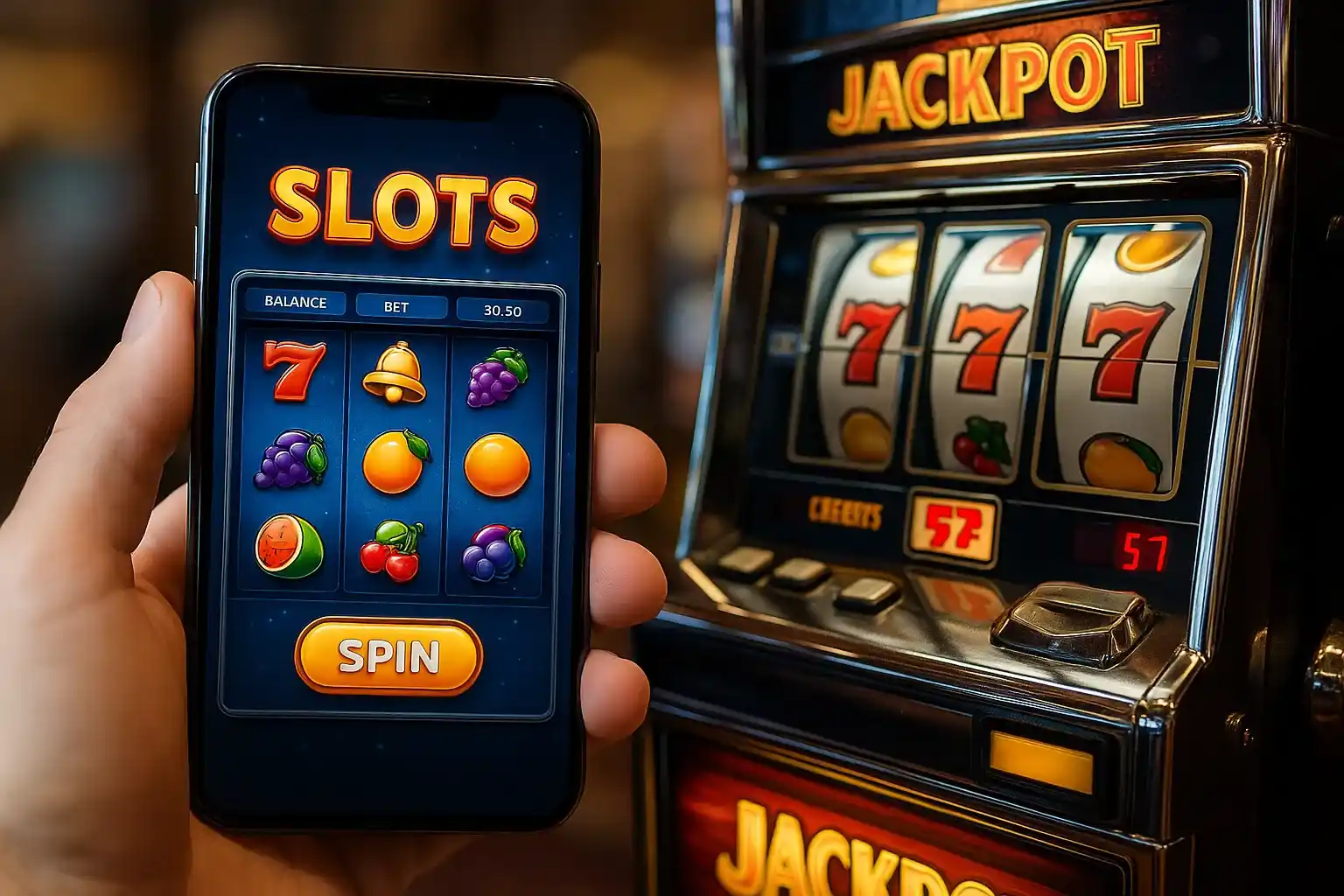Every time I step into a casino, the gentle clinking of coins and the glow of neon lights around the row of slot machines takes me back to my first spin. It felt exhilarating to pull that lever and watch the reels come to life. Fast-forward to today, and I find myself just as enthralled playing mobile slots on my phone while commuting or waiting in line. But a question that often pops up—both in casual chats with fellow players and in online forums—is: “Are mobile slots as fair as the ones you find in land-based casinos?” Let’s dive into this topic, exploring regulations, technology, player experiences, and practical insights to help you make informed choices.
The Evolution of Slot Gaming
Slot machines have come a long way since their mechanical beginnings in the late 19th century. Originally built with three physical reels and simple fruit symbols, these “one-armed bandits” gradually evolved into computerized cabinets with multi-line paytables, video screens, and immersive sound effects. The advent of the internet in the 1990s heralded the arrival of online casinos, where players could enjoy slot games on desktop computers. Mobile slots represent the latest leap, condensing high-definition graphics into apps and web browsers that fit in your pocket. Developers now push thematic boundaries with features like cascading reels, expanding wilds, and interactive bonus rounds that weren’t possible—or at least practical—on older machines. Yet despite the dazzling interfaces, the fundamental principle remains the same: match symbols at random to win prizes.
Regulations and Oversight
One of the primary concerns for any gambler is whether the game outcomes are truly random and transparent. Just as a land-based casino must obtain a physical license to operate its slot floor, reputable mobile slot providers hold licenses from gaming authorities such as the UK Gambling Commission, the Malta Gaming Authority, or state bodies in the United States. These regulators enforce strict standards around Random Number Generators (RNGs), which are the mathematical engines behind each spin.
Third-party testing labs—names like eCOGRA, iTech Labs, and GLI—conduct rigorous audits by simulating millions of spins to confirm that the RNG behaves consistently with statistical randomness. These auditors also verify that the published Return to Player (RTP) rates match the actual distribution of wins over time. You can often find detailed certification reports under the “About Us” or “Licenses” sections of a casino’s website.
If you’re curious to learn more about software validation processes and the technicalities of RNG testing, resources on sites like MDT’s overview of gaming software audits offer in-depth articles and white papers. Reading through these helps demystify how fairness is maintained across both physical and digital platforms.
Technology Behind the Spin
At the heart of both mobile and land-based slots lies the RNG algorithm, which generates numbers at a rapid pace—hundreds per second—even when the machine is idle. When you hit “Spin,” the game captures the current RNG output and maps it to specific reel positions, symbols, and bonus triggers. This process ensures each spin is independent of previous or future spins.
Modern land-based machines have mostly migrated from dedicated hardware RNG chips to software-based systems, allowing for more sophisticated game mechanics. Meanwhile, mobile slots embed RNG code within the app or web platform. The difference in delivery—physical cabinet versus mobile screen—does not affect the core mechanism of symbol selection.
Another useful comparison is the role of firmware updates. Brick-and-mortar machines require technicians on site to upload new software versions and patches. Mobile slots, on the other hand, push updates seamlessly through app stores or over the air. While this convenience speeds feature rollouts, it also places a premium on operators to maintain transparent change logs, so players can verify that updates don’t tamper with agreed-upon RTPs or game logic.
House Edge and RTP Explained
Whether you’re playing in a glamorous casino or on a slick betting app, casinos set a built-in advantage—known as the house edge—to ensure long-term profitability. RTP, the flip side of that, represents the percentage of all wagers returned to players over an extended period. For both mobile slots and land-based machines, RTPs typically range between 92% and 98%.
Mobile slot platforms often advertise RTPs clearly in the “Game Info” or “Paytable” section, whereas in a casino you might need to search for a small information plaque on the machine cabinet. In my personal experience, mobile games tend to emphasize transparency about RTP because competition among betting apps is fierce—publish a generous RTP, and you’ll attract more players.
Another factor is volatility, which describes how wins are distributed. High-volatility slots may deliver huge payouts but rarely, while low-volatility games reward players with smaller wins more frequently. Online platforms usually label volatility levels explicitly; in land-based casinos, you must gauge this over multiple sessions or consult seasoned players for insights.
The Player’s Perspective
I’ve spent countless hours on both sides of the equation—pulling hard levers in crowded casino halls and tapping “Spin” on my phone during daily commutes. From my vantage point, fairness comes down to trust and consistency.
In a brick-and-mortar environment, the sensory experience is immersive: sounds of coins clinking, flashing lights, and even the server bringing you a complimentary drink can influence play patterns. Mobile slots, by contrast, leverage convenience and personalization. You can receive tailored promotions, cash back offers, or free spins exactly when you need a boost. But that very accessibility can blur session boundaries: I’ve found myself playing longer screens sessions than I intended simply because the app never closed or shifted shifts ended.
Personal anecdotes from friends highlight this: one colleague set a strict £20 daily limit on his betting app, only to disable notifications after a big win and then lose far more overnight because he lost track of time. Conversely, I’ve seen players in casinos walk away after 30 minutes because the staff announced it was closing time or another group took the machine.
Security and Trust
Fairness isn’t just about RNGs and RTPs; it also hinges on robust security. Licensed mobile casinos use SSL encryption to protect financial transactions and personal data. Land-based casinos employ CCTV, locked machine cabinets, and regular physical audits to guard against tampering.
Responsible gaming tools also factor into trust. In the mobile context, you’ll find self-exclusion options, deposit limits, and reality checks built right into the software. I personally appreciate having the ability to set a five-minute cooldown or a maximum deposit for the week, all without speaking to a representative. In a casino, you can request these measures from management, but it takes more effort and leaves room for human error.
Practical Tips for Fair Play
After years of spinning reels—both virtually and in person—here are some actionable takeaways:
-
Verify Licensing and Audits: Always check for a valid gaming license and third-party RNG certificates.
-
Compare RTPs and Volatility: Use the game info panels on mobile slots and examine the payout charts on slot machines to match games to your risk tolerance.
-
Leverage Bonuses Wisely: Betting apps often offer welcome packages and ongoing promotions. Read terms carefully to avoid punitive wagering requirements.
-
Set Limits in Advance: Whether online or offline, decide on a bankroll before you start and stick to it.
-
Watch for Hybrid Models: Some casinos now link physical slot play with mobile accounts—allowing you to top up credits via an app and earn loyalty rewards seamlessly.
Conclusion
In the debate over fairness, mobile slots stand toe-to-toe with their land-based counterparts. Shared RNG technology, stringent regulation, and comparable RTPs ensure that whether you’re tapping “Spin” on your phone or pulling a lever in a casino, the odds are designed to favor the house—but are treated equally fairly. By choosing reputable operators, understanding game mechanics, and exercising responsible play, you can enjoy the timeless thrill of slot gaming anywhere—from a buzzing casino floor to the comfort of your living room.








